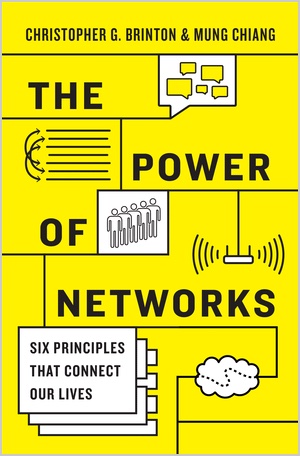
Calling all nerds! This week on the show we are talking about networks, and not just the social kind. We will answer questions such as: What makes WiFi faster at home than at a coffee shop? How does Google order search results? Why do Amazon, Netflix, and YouTube use fundamentally different rating and recommendation methods? And how do cat videos—or anything else—go viral?
We will also touch on some of the six fundamental principles of networking, which explain the difficulties in sharing network resources efficiently, how crowds can be wise or not so wise depending on the nature of their connections, how there are many building-blocks of layers in a network, and more. Understanding these simple ideas unlocks the workings of everything from the connections we make on Facebook to the technology that runs such platforms.
This week we are speaking with Christopher Brinton and Mung Chiang, both experts on the subject of networks. In fact, the duo recently paired up to write a book called, The Power of Networks: Six Principles That Connect Our Lives.
Mung Chiang is a Professor of Electrical Engineering at Princeton University. His research on networking received the 2013 Alan T. Waterman Award, the highest honor to US young scientists and engineers. He founded the Princeton EDGE Lab in 2009, which bridges the theory-practice gap in edge networking research by spanning from proofs to prototypes. Chiang is the Director of Keller Center for Innovations in Engineering Education at Princeton University and the inaugural Chairman of Princeton Entrepreneurship Council.
Christopher Brinton is the Head of Advanced Research at Zoomi Inc. He received his PhD in Electrical Engineering from Princeton University. He is an adjunct professor in the School of Engineering at The College of New Jersey.